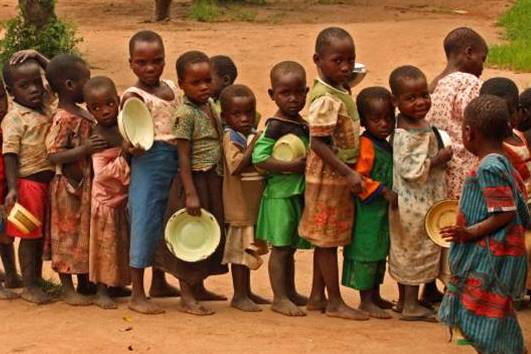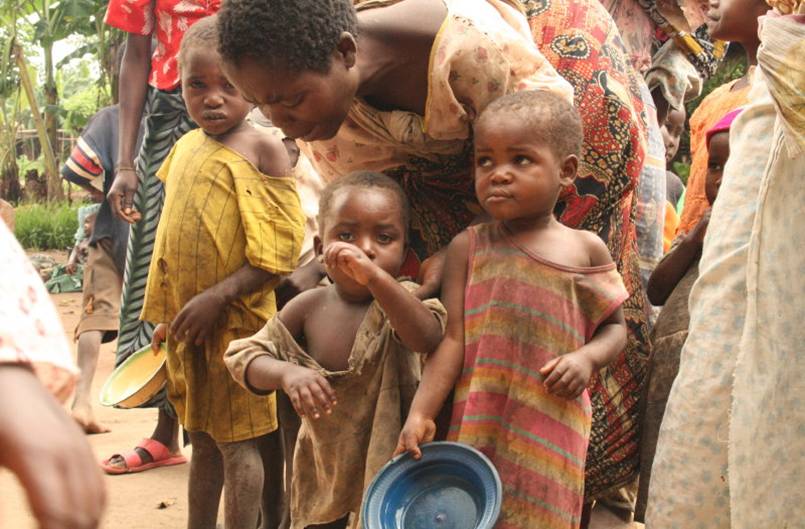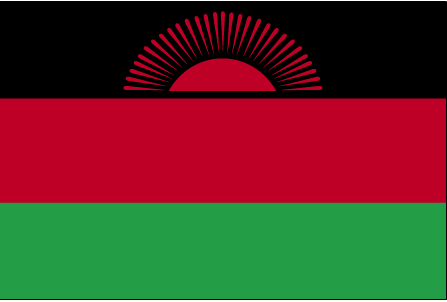Malawi todayToday, Malawi is one of the poorest countries in the world. Its economy is over-dependent on agriculture, with the great majority of Malawians relying on subsistence farming for their livelihood. The country's ability to feed itself is greatly influenced by the uncertain weather. Drought or floods often cause localised devastation to the maize crop which is the staple food for the whole nation. The falling world market for tobacco, the country's main export, increasingly means local farmers fail to profit from their hard work. The causes of the problems are however much deeper than we are free to explain in this short note. History of Malawi50 years ago there was no such place as Malawi on the map. An old school atlas shows a long thin country called Nyasaland (the lake land). Read more ... Health ChallengesRoughly 20% of the population is infected by AIDS, three times the rate of other Sub Saharan countries. Infant mortality is 102 deaths per 1,000 live births. On average 5.92 children are born to each woman. Life expectancy at birth is 41.7 years but probably much lower in the bush villages. Recent estimates suggest it is as low as 37 years. Without AIDS it is estimated it would be approximately 55 years. Malawi also has among the worst rates of maternal death in world. All too often the head of the household is an older child or a grandparent. Most of Malawi is subject to malaria and the local population cannot afford the prophylactics that visitors take. Read more .... |
  |
Other challenges facing the local team
The culture of the entire nation is steeped in witchcraft. The Chewa tribe who live mainly within the Central region of Malawi (and across the border with Zambia and Mozambique) have retained within their culture very strong and active animistic beliefs. Quoting from an author on the Chewa people: “Ancestors and spirits of other living creatures play an important part in present day society by being in constant contact with the living world, predominately through dance of those initiated to 'Nyau', or secret societies.” The Nyau remain an active part of their day to day life, and their initiates consider themselves to be possessed by the spirits of the dead ancestors or animals or even by evil spirits. The belief is a direct opposition to the rule and leadership of Jesus, although many Nyau leaders are involved in local “church” groups. We have seen that it is difficult for the Chewa to truly forsake this way of life. There remains considerable opposition to the work of spreading the gospel from that quarter.
Poverty is also a great problem. Malnutrition not only effects the body but the mind which, together with the wrong practices of the culture, can cause a barrier to people being set free to follow Christ. The need to earn a daily living, by whatever means possible, is so all controlling that it often counteracts the claims of the gospel.
The lack of education and knowledge cannot be underestimated either. Poor agricultural practices have a hugely negative impact on the society. Introducing and teaching sustainable farming methods against this cultural background is an enormous challenge, yet these are aimed at bringing transformation to individuals and communities through faithful and productive use of the land.
External Web Sites on MalawiRead more about Rural Poverty in Malawi on the International Fund for Agricultural Development (IFAD) website. View the BBC News Country Profile of Malawi. View the current political situation in Malawi. Please note that SaltMalawi can take no responsibility for information shown on third party web sites. |
 |

